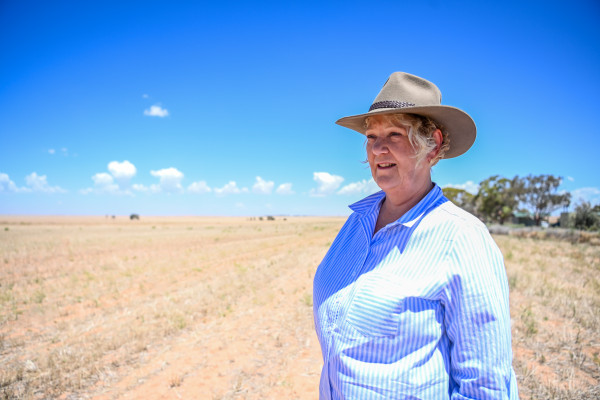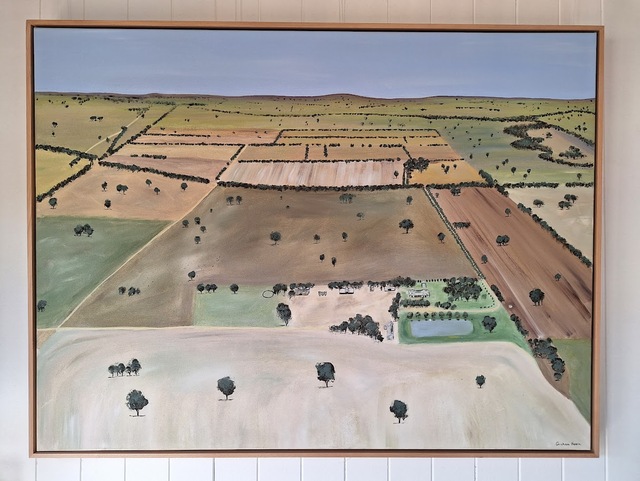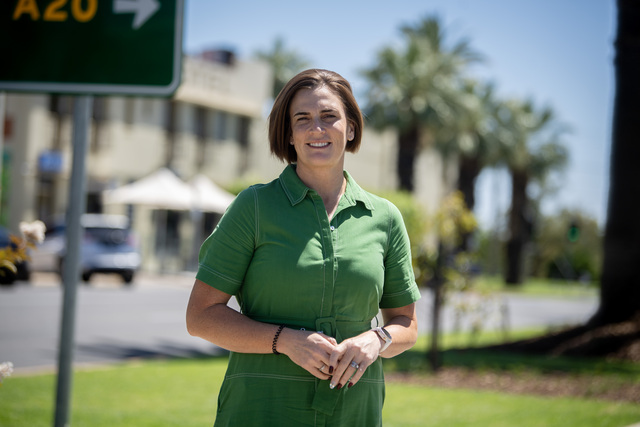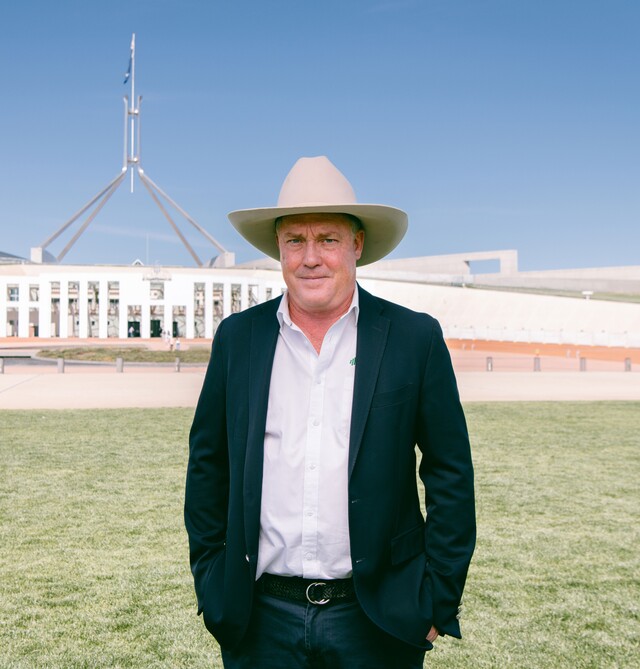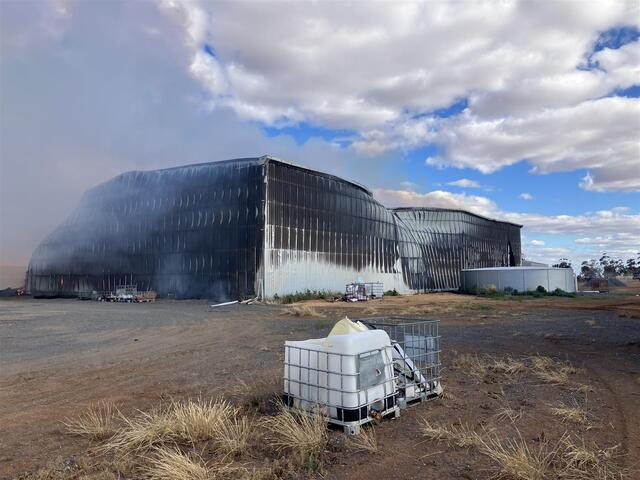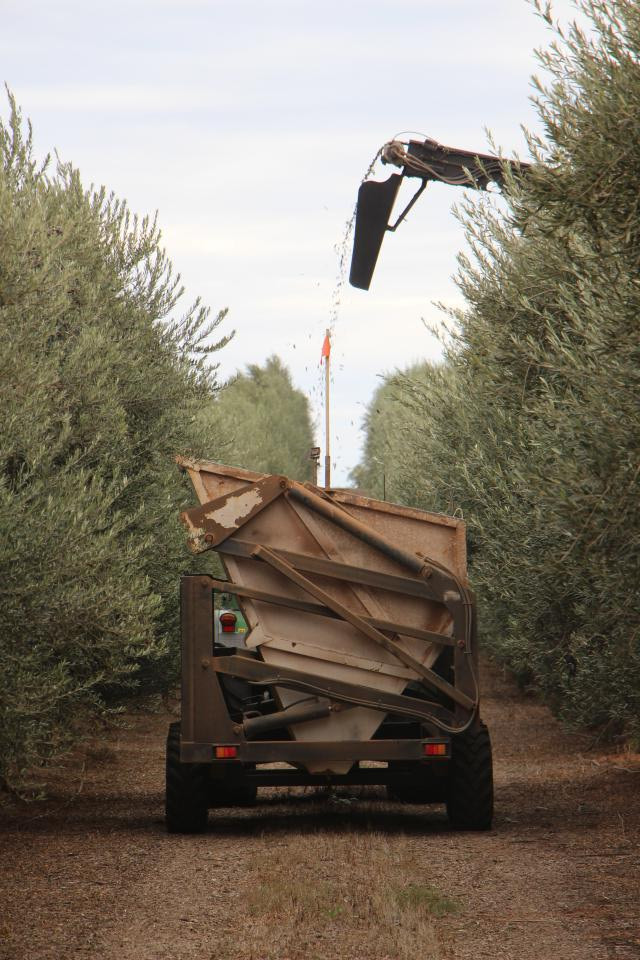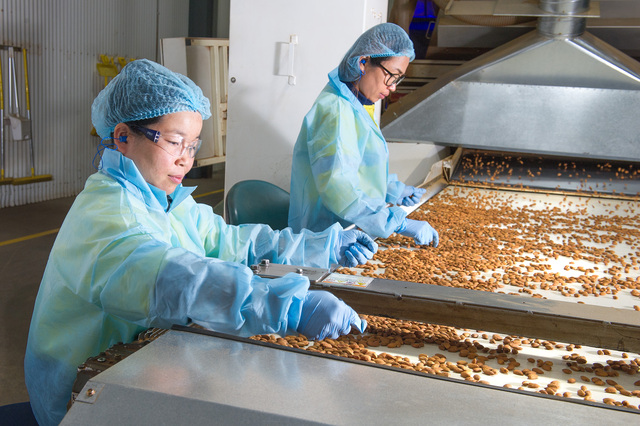Mallee Sustainable Farming’s new managing director, Jenny Garonne, is an avowed collaborator who will draw on her 30 years of experience in leadership roles. ANDREW MOLE reports. COMING out of four years as a chief executive in the age care industry, Jenny Garonne, the woman just named as managing director of Mallee Sustainable Farming, will certainly be something different for the farmers which make up its membership.
But that’s okay, Jenny says, pointing out it will be even more different for her.
An accountant by training, she has worked extensively in the business and economic development sectors in federal, state, and local government.
And aged care.
She does have a strong agricultural connection, however. Her grandparents, who started farming back at beginning of the soldier settlement schemes, were classic Sunraysia farmers – citrus and dried fruits producers – and Jenny recalls many summer holidays making her pocket money as a picker on their blocks.
MSF chair Steve Burt says the board views Jenny, and her extensive experience and qualifications, as an outstanding addition to the MSF team, “reinforcing the organisation’s commitment to advancing sustainable practices in the dryland farming industry across the tri-state region”.
“We are delighted to welcome Jenny to lead our organisation,” he says.
“Her proven leadership in Mildura brings a fresh perspective to our board and the entire MSF team – we believe this marks an exciting turning point for MSF,” Steve added.
“With a dedicated staff, a robust project portfolio, and the potential to attract additional funding, Jenny’s leadership is a crucial step toward further professionalising and expanding our impact.”
Slightly embarrassed by the effusive announcements, Jenny says she expects to be absorbing more knowledge than she will be dispensing for the next few weeks, at least.
She’s hardly had time to put her feet under her desk before being whisked off to Adelaide for the Grains Research Development Corporation updates and a whirlwind of information and introductions to many of the organisations that she will be working with.
But she is sufficiently switched on to be more than aware of the resilience of the region’s dryland farmers, who have navigated years of drought and low rainfall.
‘I look forward to understanding their needs, supporting our committed board’s decisions, and leading our team of professionals and researchers in serving the dryland farmers and the wider community to which MSF is dedicated,” Jenny says.
Reflecting on her extensive background in government, business, and economic development, Jenny added she was “excited to incorporate the knowledge gained from more than 30 years of leadership roles into this new endeavour”.
“For nearly 25 years, MSF has played a vital role in supporting the resilience and sustainability of the dryland farming community. Ms. Garonne’s appointment signals a promising chapter for MSF, reinforcing its dedication to advancing innovation and excellence in the region.”
Aged care to broadacre cropping might seem a singularly unusual career move but scratch just beneath the surface and it’s not hard to see the potential connection for someone like Jenny Garonne.
First up, despite a distinguished career, she had never been the one with the ultimate hand on the helm of a large organisation.
So when the opportunity arose, she grabbed it with both hands, unwittingly entering the aged care industry at the most challenging and demanding time in its history.
COVID-19 was, and in many respects, remains a massive challenge for everyone involved in running aged care.
“Don’t misunderstand me, my whole four years in aged care was an amazing experience, the people you met – residents, their families and staff – and the issues you dealt with, it was incredibly fulfilling,” Jenny explains.
“COVID and also the outcome from the Royal Commission into Aged Care, of course, meant everyone was learning, and as fast as we could, and it created a whole new world, in management, in regulation and in changes to accreditation, in so many aspects of what had once been a pretty established routine,” she says.
“And much of that translates so smoothly to the role I perceive at MSF – agriculture is also so much about the value-add, in fact in many ways, at MSF, our role is purely about the value-add.
“Whether it is through innovation, extension, education, and embracing change, we have members with a core focus on producing food and it is our job to help them to have better outcomes and make it easier for them to go about that.”
Apart from all the many things she is, by qualification and experience, Jenny believes one of her key strengths is collaboration.
She is at heart, she confesses, “a collaborationist”.
In isolation, she says, peer and industry groups such as MSF, can record limited achievements – and be very successful at it.
But with an industry as fundamental as agriculture, “there is a whole world of energy, innovation and ideas on which to draw”.
“We just have to reach out and join up with as many people as possible,” Jenny added.
“Just look around our little corner of the world. We have the Birchip Cropping Group, the Drought and Innovation Hubs and Mallee Regional Innovation Centre. Sunraysia is awash with industry bodies, Citrus Australia, Murray Valley Winegrowers, Dried Fruits Australia, they’re everywhere, and they are all doing brilliant things in progressing their industries,” she says.
“Complemented by agriculture departments, universities, CSIRO, chemical companies, ag machinery industries and technology.”
Technology – Jenny’s enthusiastic eyes light up at the mention of the magic word.
“Have a look at what we now have at our disposal; it’s not that long ago no-one would have known what you were on about if you threw GPS into a conversation,” she says.
“Now we have people trialling big ticket machinery, for example, which doesn’t need people.
“And then there is data. Data drives it all and the more we have, the more we can squeeze out of it.
“That’s why I am a collaborationist, we can’t think of everything, we can’t do everything, but we can be part of everything.
“We can start to build clusters, start with smaller local ones probably, but keep on building, so we can drill right down for more specialised knowledge – just look around the Mallee, where most of its agriculture survives on 350mm of rain (or less) a year, yet there is still so much variety in how people go about using that very limited resource.
“At MSF we will be trying even harder to understand the farmers’ needs and to support the area’s sustainability – the more we can boost that, the more we help build resilience, not just for our farmer members but for our whole community, that’s such an incredible flow-on effect.”
Importantly, the dryland farming industry and MSF in particular, are supported by funding from state and federal governments, the Grains Research and Development Corporation and other organisations such as the Mallee Catchment Management Authority.
Climate is also one of the first questions on everyone’s lips these days, and Jenny’s approach is primarily pragmatic.
She says the climate has always been a challenge for Mallee agriculture, so nothing new there.
And no, she doesn’t want to be pigeonholed as a climate change activist or naysayer.
“In our world, we are about sustainability, rain, hail or shine. We are about having the right products, the right methodology. Whether that’s deeper tilling, or no tilling, whether it means we try and do so much more with carbon and getting it back in the soil; or look at carbon farming, it is about doing it right so we are ready for whatever the next season brings.
“And then we have to fund those strategies, which is where collaboration and clusters really start to pay off.
“MSF has achieved so much in such a relatively short time, it has such strong partnership foundations, and I am so fortunate to have been given a rock-solid launching pad.”

